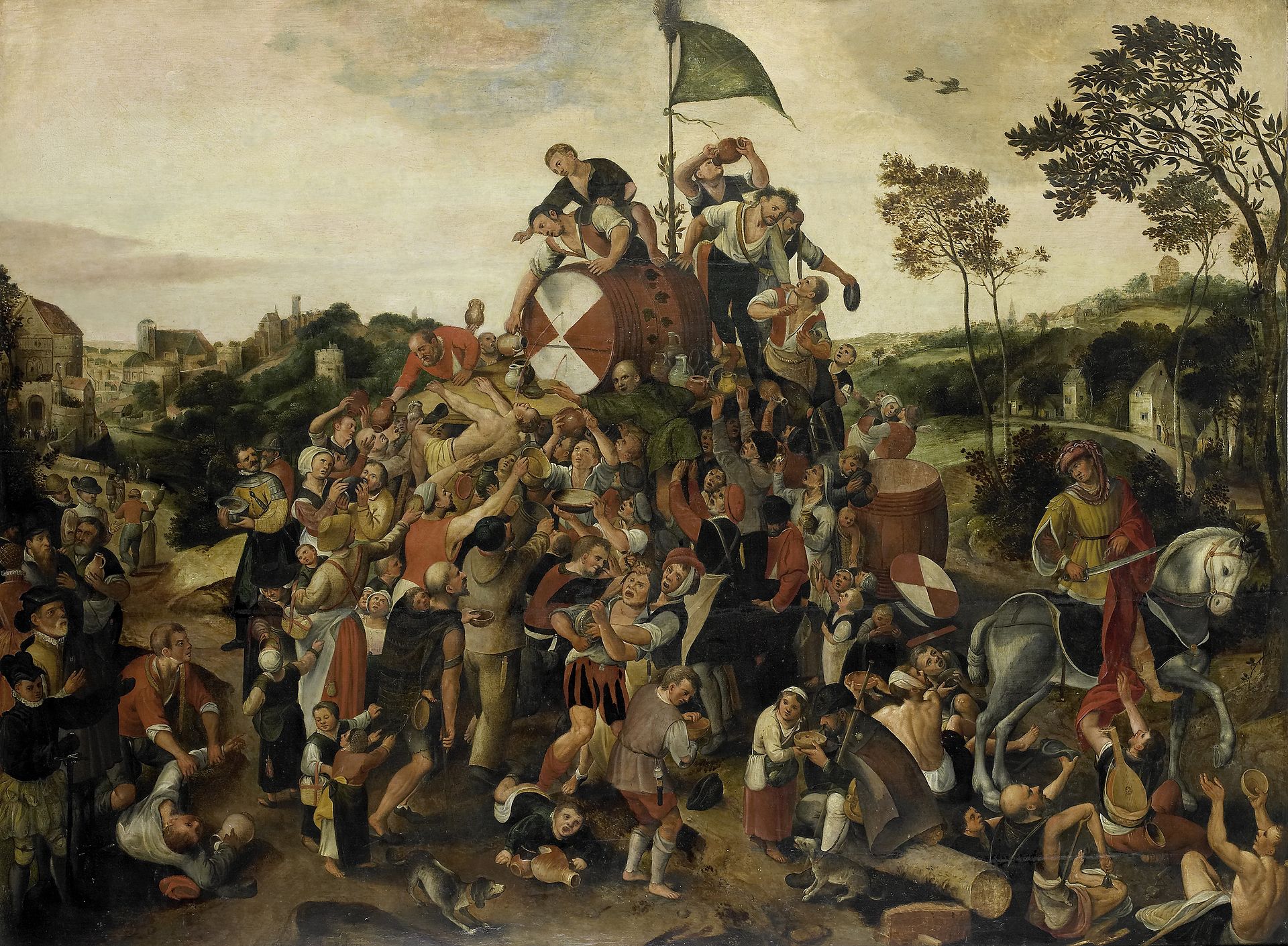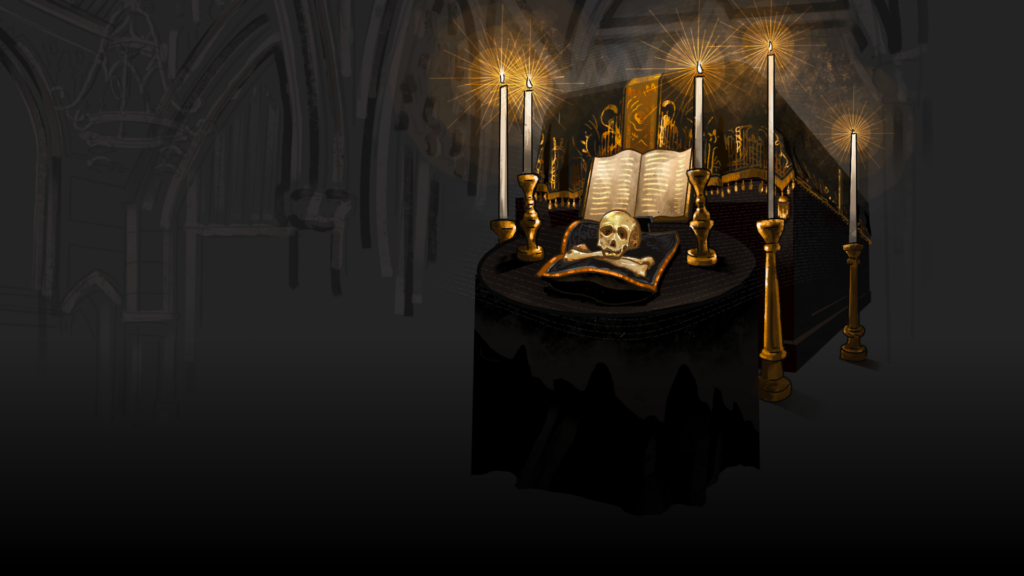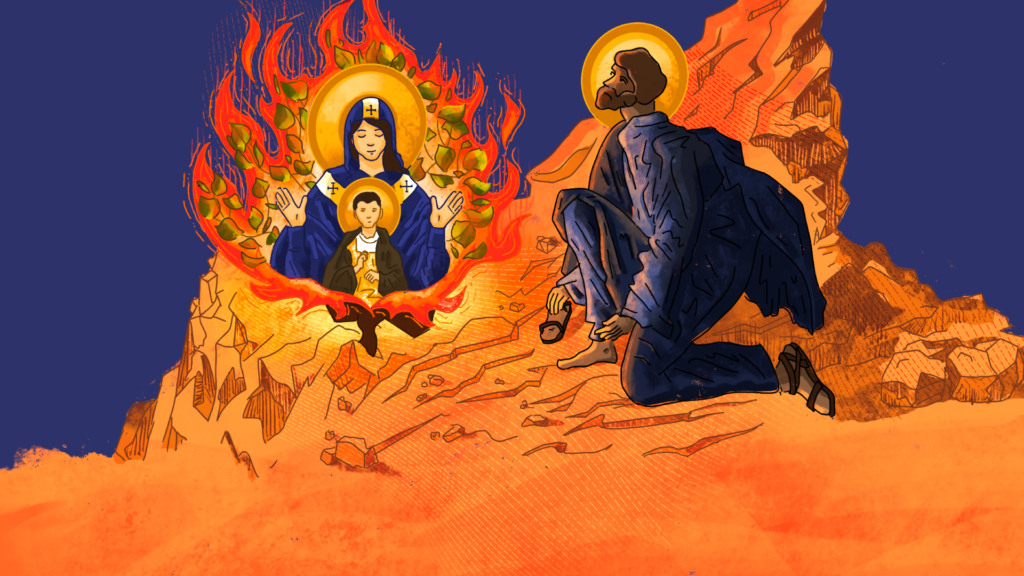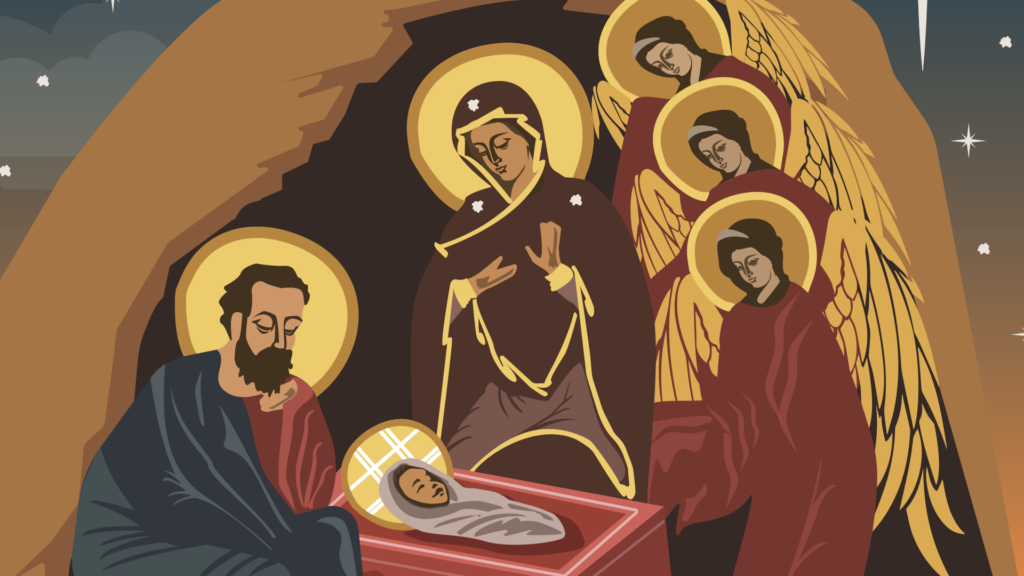Exodus is known for fasting and our ascetical practices. But why do Christians fast at all? Jesus tells us that it has to do with the presence of the Bridegroom: “Can you make wedding guests fast while the bridegroom is with them? The days will come, when the bridegroom is taken away from them, and then they will fast in those days” (Luke 5:34-35).
We are exiles and pilgrims on our journey to heaven, meaning that we need to fast to stay on track, not getting bogged down or off course by focusing too much on this world. On the other hand, through the liturgy, the goal of the pilgrimage is already present to us. The Mass expresses the wedding feast of the Lamb, possessed now only in part, as an anticipation of our final resting place.
This life, then, must express at the same time our life as pilgrims, through our fasting and penance, and also celebrate the presence of Jesus right now in our midst.
Exodus contains two main penitential seasons in our “ordo,” our annual calendar of exercises. First, the 90 days in preparation for Easter, our most intense time of asceticism. Next, we have St. Michael’s Lent, a summertime Lent that keeps us on track, though not as intense as the 90. We have other times that focus on maintaining our focus and growth, such as Summer and Fall. A season of anticipation and preparation in Advent. And finally, a season focused on celebratory feasting: Easter.
It’s a beautiful rhythm of fasting, feasting, preparation, and ordinary life.
Sprinkled throughout the year, we also encounter other feasts focused on the great moments of salvation history, like the Annunciation, Transfiguration, and Pentecost. We also remember the great witnesses and models of the Christian life in the saints. Some of these figures rise to the surface during our exercises by pointing us to the deeper meaning of prayer, asceticism, and fraternity. St. Francis models the forty-day prayer of St. Michael’s Lent, which he popularized. St. John the Baptist went out into the desert and embraced the battle of asceticism. St. Benedict taught us the importance of relying on brothers within a community for growth in the Christian life. Overall, the apostles model zeal in spreading the faith and giving their lives to Christ.
At Exodus, we will continue to highlight particular saints who connect with our mission and whose feasts accent our exercises. This may change from year to year. On the most important of these days, whether feasts or solemnities, we will relax at least one of our disciplines to highlight the importance of a feast within the fast, giving us encouragement in our labors.
Dr. Staudt serves as Director of Content for Exodus and as an Instructor for the Lay Division of St. John Vianney Seminary. He is the author of How the Eucharist Can Save Civilization (TAN), Restoring Humanity: Essays on the Evangelization of Culture (Divine Providence Press) and The Beer Option: Brewing a Catholic Culture Yesterday & Today (Angelico Press). He holds a Ph.D. in systematic theology from Ave Maria University and B.A. and M.A. in Catholic Studies from the University of St. Thomas (St. Paul, MN). He and wife, Anne, have six children and he is a Benedictine oblate.






